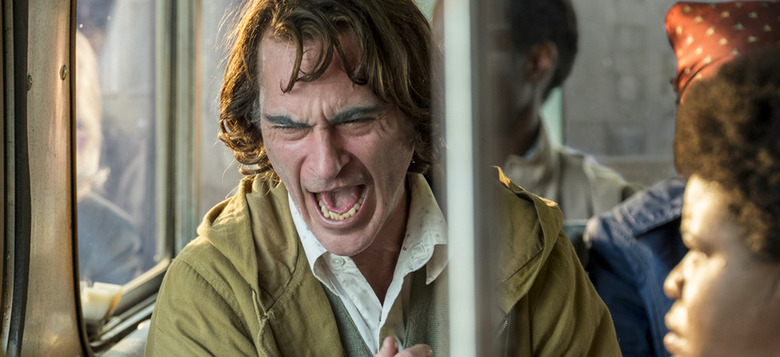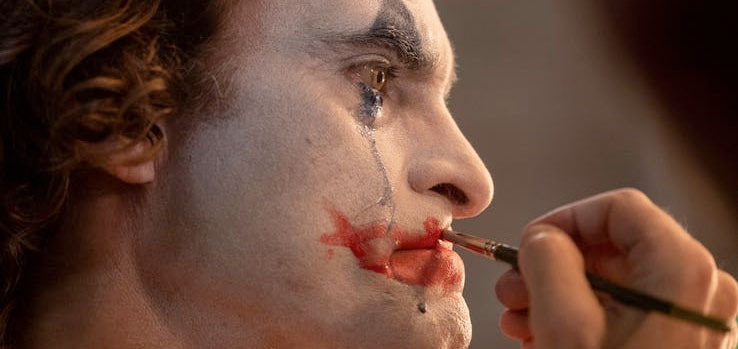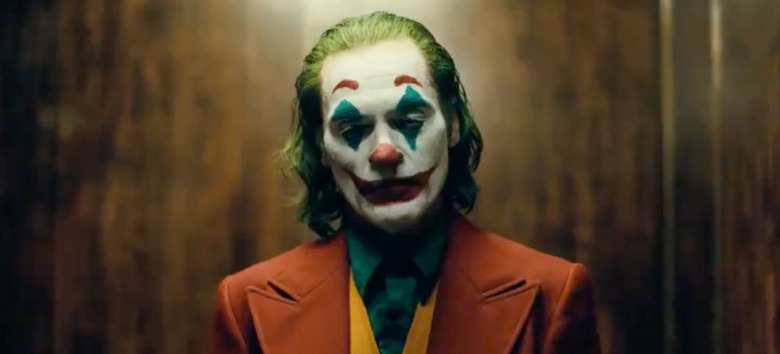Only Todd Phillips Could Have Made 'Joker'
Todd Phillips makes ugly movies. Yes, they're comedies, but they typically have a noticeable lack of empathy and humanity. There's not a lot of joy in his comedies, mostly misery. The Hangover movies get progressively crueler, and War Dogs and Due Date aren't much different. He's cold and displays an appetite for pain, and those qualities are turned up to 11 in Joker.
With Arthur Fleck (Joaquin Phoenix), Phillips couldn't have found a comic book character more attuned to his divisively morbid sensibilities. The director never would've been right for a superhero movie about one of "the good guys," because his movies are hardly ever about good guys. A movie about Joker probably should look and sound like an abrasive Todd Phillips' movie. The villain got the director he deserved, and Phillips, whose movies are largely about nothing, found a comic book character he deserved in Arthur Fleck – a man who believes in nothing.
This article contains spoilers for Joker.
Pain and Laughter
The brutality of Gotham City, the pain inflicted and caused by Arthur – it's all right up Phillips' wheelhouse of suffering. After Joker, I left both impressed by how much and how little Joker felt like a Todd Phillips movie. He's never made a character study before, but so much of it is his biting sense of humor and unpleasantness completely unchained. There's a moment where Arthur walks into a glass door after talking to cops that's almost straight out of a Hangover movie. Phillips' background in comedy stops Joker from being just droll doom and gloom. His comedy isn't for everybody, but then again, no movie can be for everybody.
Some critics find the very nature of his comedies off-putting, but what people dislike about them is almost too perfect for Gotham. The Hangover movies grow bigger, louder, and cruel, almost to the point of punishing the audience. There's something about that attitude that's right at home for Gotham and Arthur's journey. When Arthur proclaims "everyone is awful these days," the overall air of awfulness in Joker is authentic coming from Phillips. Exactly like Arthur, Phillips knows how to make an audience uncomfortable. He's never shied away from offensive material, and his penchant for pushing buttons isn't always out of line in Joker. In many ways, it should feel terrible.
Most comic book movies are pure comfort food. They give us exactly what we want, which there's nothing wrong with, but there's very little uncomfortable or challenging about them. They're wholesome and agreeable experiences, but do they all have to be? Phillips, maybe because of his contrarian nature, thinks not. Whether its mean-spiritedness is successful is another question, but the director's knack for cruelty does, at the very least, bring something fresh to the genre. A movie about Joker shouldn't be pleasant, anyway.
Style With a Dash of Substance
Phillips makes comedies that look and sound better than 90% of its genre. He's got a good eye, even if it's not always supported with the most substance. This time, however, his slickness serves his story well and carries more weight than usual, with his commercial aesthetic creating a wall between the real world and this fictional world out of a comic book.
Joker is so much more about movies – did you notice it's sort of like Taxi Driver and King of Comedy? – than reality. The environment is gritty and familiar and very New York City, but the fact that a commercial director like Phillips, not somebody all about realism, keeps real life out of mind. There's usually something distancing about Phillips' films, but in the case of Joker, that distance creates a feeling of remove that makes the heinousness not hit too close to home, at least for myself. While Gotham does look like it's dying by the day, it also looks like a fantastic Hollywood movie at the same time. With its rich colors, big soundtrack choices, and larger-than-life yet grounded performances, divorcing the comic book movie from reality isn't difficult. Plus, Joker is all about a sole character, not the world at large, anyway.
Phillips' movie is more appealing to the eye than most comic book movies with a real consideration of point-of-view. The movie always shows you exactly what Fleck is feeling. When he becomes Joker and dances down those steps like he's in a Busby Berkley musical, it looks glorious because it feels glorious to Arthur, not because Phillips is glamorizing his evil or going for eye candy. Impressively, the director's commercial aesthetic never somehow depicts Arthur's actions in a positive light. As good as he makes it all look, it doesn't sugarcoat the ugly content.
One Todd Phillips Problem Remains
If there's one area where one of Phillips' trademarks isn't as enjoyable in Joker, it's the women. Can you think of one great female character in one of his movies? One as quotable as his dudes? Maybe Juliette Lewis in Old School, but for the most part, women never get much fun, presence, or the substance in Phillips' movies. He directs movies about men mostly for men, which could be said of Joker, and it has been, a lot, in case you hadn't heard.
There's one role, in particular, that just isn't up to snuff as the rest of the cast. Frances Conroy brings some real humanity to the movie, but Zazie Beetz's part underwhelms and isn't much more than a plot point. Beetz is great and magnetic, per usual, but she's playing nothing more than a creepy fantasy. Yes, that's the point, she's not real and is a warped fantasy woman in Arthur's mind, but it's not a particularly substantial role in a movie packed with juicy roles.
In the end, Sophie Dumond's (Beetz) storyline only serves the purpose of raising one question in Joker, similar to a question at the end of Taxi Driver: Is this all real or not? If Arthur imagines an entire relationship in his head, then what's to stop him from imagining himself on his favorite talk show and becoming a symbol for Gotham from the confines of Arkham Asylum? How seriously should anything we see in the last half of the movie? Maybe it's all joke and a troll move from Phillips, which is on-brand for the filmmaker and his supervillain.
Final Thoughts
Usually, I walk out of Phillips' movies not feeling much or having much food for thought, but for the first time, he's made a movie genuinely stirring. His instincts, and sometimes flaws in the past, are often strengths with his latest movie. He's a director who provokes strong reactions, and he's getting a lot of them for Joker. A movie that gets everyone talking, on some level, is a success. Joker is not a passive experience either, good or bad, and like most comic book movies, it's about the visceral experience and maybe not a whole lot else, and that's fine. Wherever an opinion falls on Joker, there's something to talk about. Phillips deserves credit for that, but the central reason why all the movie's pain and misery is watchable is because of the hypnotic work from Joaquin Pheonix, whose performance kept my mind focused squarely on him. It's a riveting and rattling performance that elevates Joker to another level. Most audiences agreed this past weekend.
The movie made a boatload of money, won the top prize at the Venice Film Festival, and has been embraced by audiences and most critics, but the people who dislike the movie do so with fire and brimstone. Based on the content and execution of Joker, that's understandable. Everyone's reaction is valid, but I do wonder if someone other than Phillips – a director not exactly cool to say you like – directed Joker, if any reactions would sound... different. Just like actors, a director's name alone can bring baggage to a movie, based on their past work, quotes, or whatever else. Criticize the creative choices and the movie's flaws for days on end, but here's a question, and it is just a question: If some beloved auteur director's name was on Joker, would some reactions sing a different tune?




